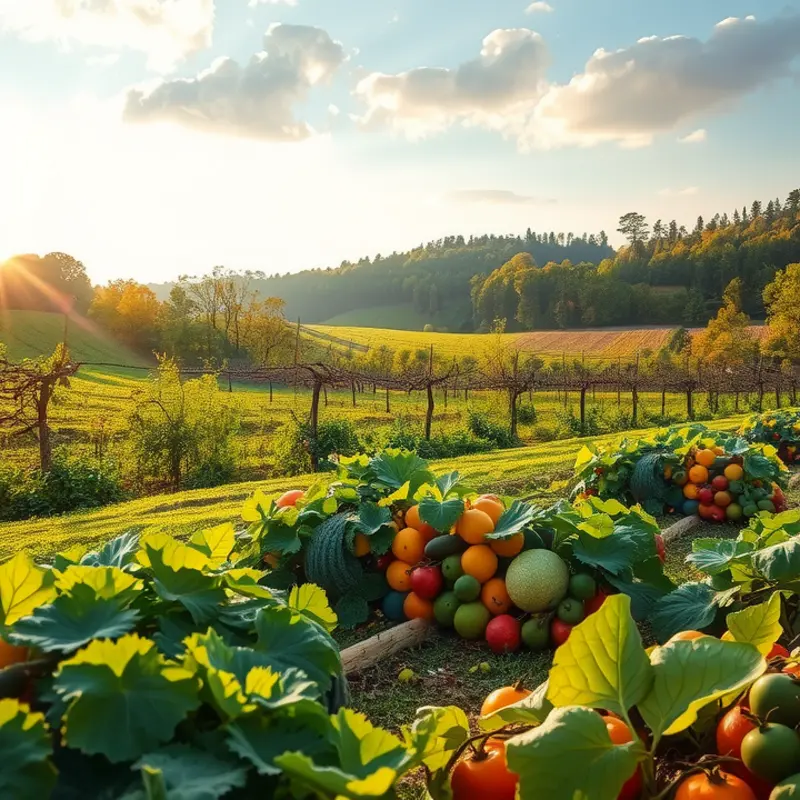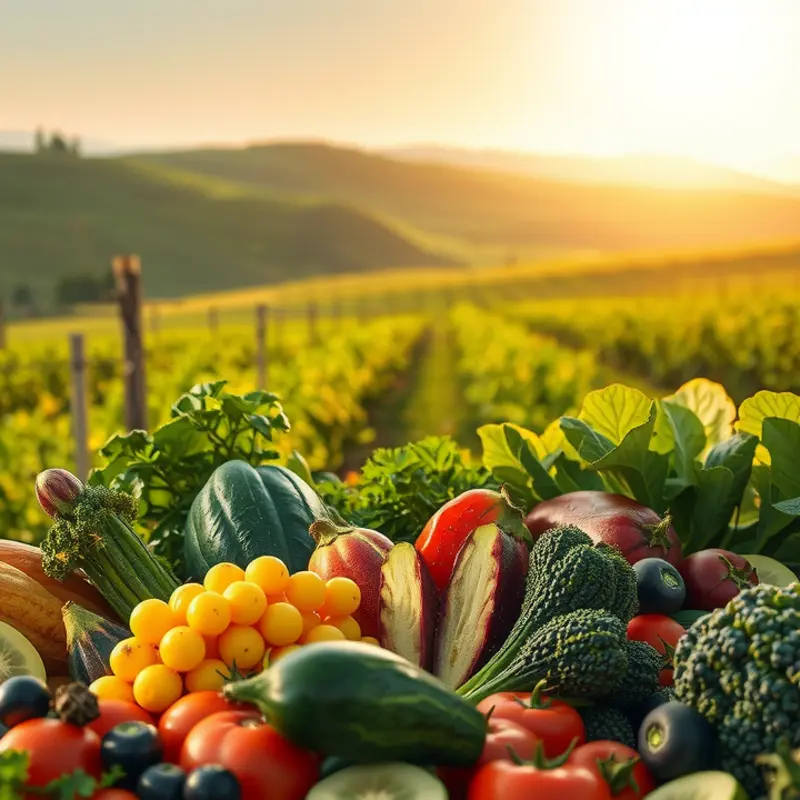Livestock farming is a significant contributor to environmental challenges such as climate change, deforestation, and water scarcity. Understanding the impact of our food choices, especially with regards to animal agriculture, empowers us to make more sustainable decisions for both personal health and the health of our planet. This guide delves into the implications of livestock farming and offers solutions for eco-conscious consumers looking to reduce their environmental footprint through mindful eating.
The Environmental Toll of Livestock Farming

Livestock farming is a significant contributor to environmental degradation, primarily through greenhouse gas emissions, excessive water usage, and land degradation. These factors have profound implications for climate change and biodiversity, causing concern among environmentalists and consumers alike.
The livestock sector is a major emitter of greenhouse gases, releasing more emissions than the entire global transportation sector combined. Methane, produced by ruminants like cows and sheep, is a potent greenhouse gas, with a global warming potential over 25 times greater than carbon dioxide over a 100-year period. Additionally, livestock farming releases significant amounts of nitrous oxide, another powerful greenhouse gas, mainly from manure management and fertilized fields.
Water use in livestock farming is another critical environmental concern. The production of animal products is notoriously water-intensive, requiring vast amounts of freshwater. For instance, producing one kilogram of beef can use up to 15,000 liters of water. This high water footprint is unsustainable, especially in regions already facing water scarcity. As demand for meat increases, the impact on global water resources is set to escalate, further straining the planet’s already limited freshwater supplies.
Land degradation due to livestock farming presents yet another challenge. Vast areas of forests are cleared to make way for pastures and feed crops, leading to deforestation and loss of habitat for many species. A significant portion of the Amazon rainforest has been lost for cattle ranching alone. This deforestation not only contributes to carbon emissions but also endangers countless plant and animal species, threatening biodiversity on a global scale. The destruction of these ecosystems diminishes the land’s ability to sequester carbon, exacerbating the effects of climate change.
The cumulative impact of these activities jeopardizes biodiversity, which is crucial for the stability of ecosystems. The loss of habitat and species disrupts food chains and ecosystem services, such as pollination and water purification. As biodiversity declines, ecosystems become less resilient to environmental stressors, increasing their vulnerability to climate change’s adverse effects.
Addressing the environmental toll of livestock farming requires comprehensive strategies that encompass sustainable practices, technological innovations, and a shift in consumer behavior. Reducing meat consumption and opting for plant-based alternatives can lessen environmental impact. Consumers can make informed choices by exploring dietary options that align with sustainability goals. Exploring plant-based eating can serve as an entry point for those looking to reduce their ecological footprint.
Efforts to mitigate the environmental impact of livestock farming are gaining momentum. Advances in technology, such as efficient manure management systems and the development of synthetic meats, offer promising prospects. Policy interventions aimed at reducing emissions, conserving water, and protecting ecosystems are crucial in fostering a sustainable future for the planet.
While the environmental challenges posed by livestock farming are formidable, embracing sustainable agricultural practices and responsible consumption can significantly mitigate their impacts. Our choices today will shape the health of our planet for generations to come.
Making Eco-Friendly Choices: Alternatives to Conventional Meat

To mitigate the environmental impact of livestock farming, transitioning to more sustainable food choices is imperative. Embracing plant-based diets, supporting local organic farming, and adopting sustainable practices can all contribute to this shift. Here’s how you can make eco-friendly choices effectively and effortlessly.
Switching to a plant-based diet is one of the most impactful changes you can make. Plant foods like legumes, grains, nuts, and seeds can easily replace meat in many dishes, offering protein, fiber, and essential nutrients. Using beans or lentils in place of meat is an excellent way to cut down on saturated fats while boosting dietary fiber. Try incorporating them into soups, stews, and even burgers.
Experiment with meat substitutes like tofu, tempeh, and seitan. These are versatile and can take on various flavors, making them a delightful addition to stir-fries or grilled dishes. Additionally, mushroom varieties such as portobello and shiitake offer a meaty texture and umami flavor that can satisfy savory cravings.
Supporting local organic farming is another sustainable choice that reduces food miles and supports biodiversity. Organic farms often practice crop rotation, avoid synthetic pesticides, and use sustainable water management practices, which can protect local ecosystems. When possible, shop at farmers’ markets or join a community-supported agriculture (CSA) program. This connects you with seasonal produce and reduces dependence on environmentally detrimental farming practices.
Adopting simple sustainable practices in the kitchen is a practical step towards reducing meat consumption. For ideas on how to optimize your kitchen for sustainability, consider exploring resources like the eco-smart kitchen storage guide which provides tips on waste reduction and efficient food storage.
To incorporate these changes into your daily life, start by planning meals in advance. Meal planning and ingredient batching can help reduce waste and ensure you have plant-based ingredients on hand. Gradually introduce new recipes and alternatives into your weekly menu, making the transition smoother. For instance, dedicate one day a week to trying a new vegetarian recipe or assigning certain meals as meat-free.
Balance is key when making dietary changes. Ensure your diet remains diverse and nutrient-dense by incorporating a wide variety of plant foods. Consider consulting a nutrition guide to ensure that all your dietary needs are met through plant-based sources.
Small, mindful changes can lead to significant environmental benefits. By choosing alternatives to conventional meat, you contribute to a more sustainable future, benefiting both your health and the planet.
Final words
Understanding the impact of livestock farming is vital for environmentally-conscious consumers. By making informed choices, such as opting for plant-based diets or supporting local organic farms, individuals can significantly reduce their carbon footprints and contribute positively to environmental preservation. Every meal presents an opportunity to care for our planet. As consumers, we hold the power to influence sustainable agricultural practices through mindful eating habits. Let’s embrace this responsibility, creating a healthier, more sustainable future for generations to come.








